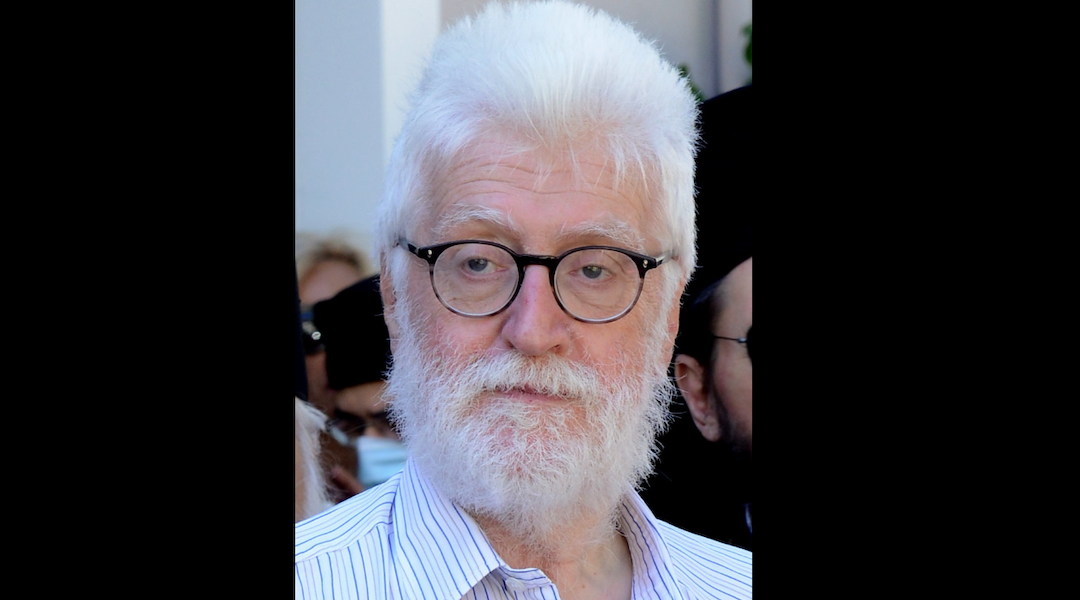Moses Elisaf, first Jewish mayor of a city in Greece, dies at 68
He was the longtime leader of the Jewish community in Ioannina, a center of Romaniote Jewish history

Moses Elisaf, shown in 2021, was also the longtime leader of the Ioannina Jewish community. (Nikos D. Karabelas/Wikimedia Commons)
(JTA) — Moses Elisaf, thought to be the first Jewish mayor of a city in Greece, died at 68 on Friday after a brief battle with cancer.
Elisaf, mayor of Ioannina since 2019, was hospitalized during a work trip to Athens in December, the Kathimerini newspaper reported. He extended his hospital stay on Dec. 19, reportedly citing “serious health reasons” in a letter to government colleagues.
Only a few dozen Jews remain in Ioannina, once home to one of the continent’s largest populations of Romaniote Jews. That ethnic community native to the Mediterranean region is distinct from Sephardic Jews, who were originally associated with the Iberian Peninsula. Elisaf, a pathologist, was head of the city’s Jewish community for two decades and a member of the board of directors of the Central Jewish Council of Greece.
Most of Ioannina’s prewar Jewish population was killed during the Holocaust. Elisaf was born in 1954 to parents who had escaped to Tel Aviv before returning to Greece after the war. He graduated from the University of Athens in 1979 and worked 1993-94 at the Sackler medical school at Tel Aviv University. Elisaf told Haaretz in 2019 that he visits relatives in Israel regularly.
He became a professor at Ioannina Medical School, and his 2019 mayoral run was his first foray into politics. While campaigning as a centrist independent, rivals tried to claim he was “connected to the Mossad or the Israeli embassy.” He beat the city’s incumbent in a tight runoff with 50.3% of the vote.
“Despite antisemitism and the rise of racism in our times, the citizens have elected a Jew as their mayor, evaluating my personality, our plan for the city’s future, our candidates, our ethos during the election campaign,” he told Haaretz.
This article originally appeared on JTA.org.



















